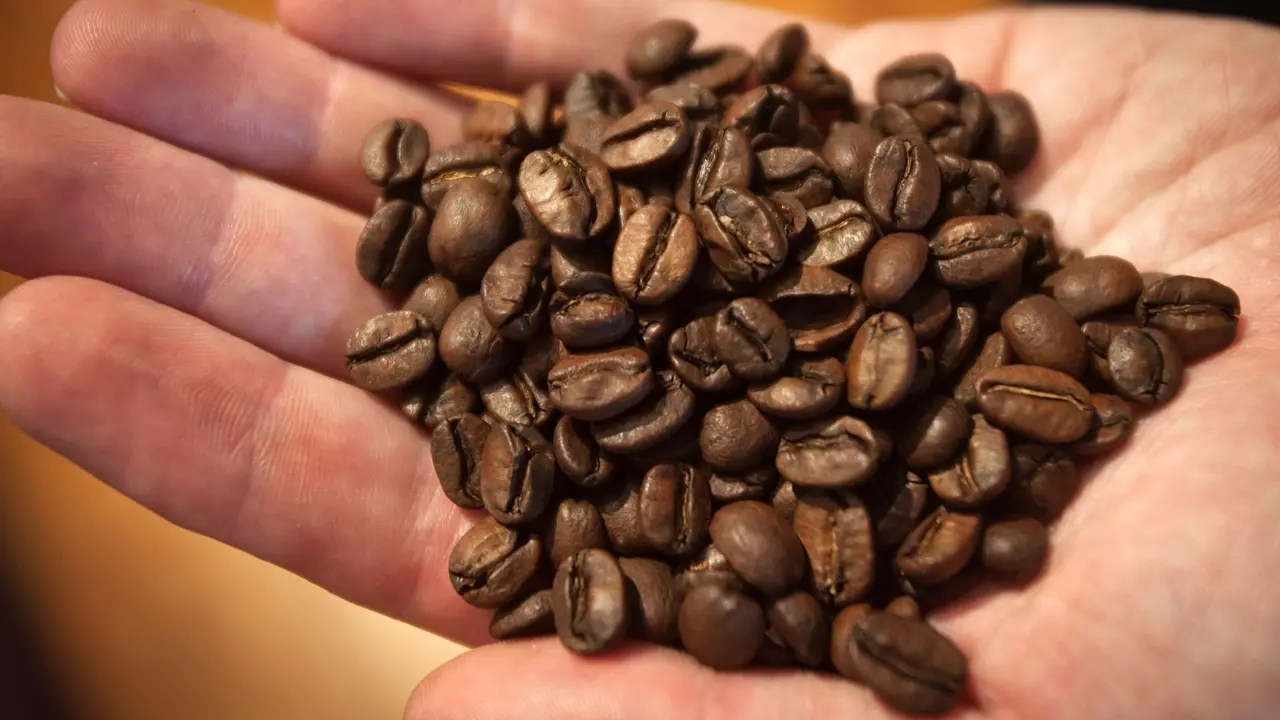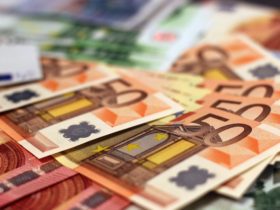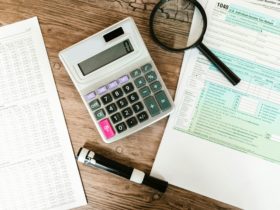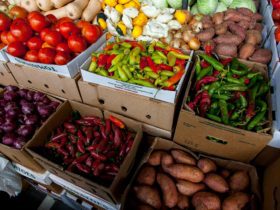Coffee prices on the stock exchange are at their highest in a decade and could rise further, analysts say. The impact of uncertainty and insufficient coffee supplies will continue into next year due to a combination of vital factors for the coffee industry.
Firstly, there are harmful weather effects in Brazil, such as frost and drought. In addition, another essential export country, Ethiopia, is on the brink of civil war, making coffee production even more unstable. In Vietnam, production could again be affected by rising numbers of Covid-19. Colombia is also experiencing export and international transport problems due to the pandemic.
The price of green, unroasted coffee on the New York Stock Exchange is now climbing to 2.50 dollars per half a kilo. Compared to last year, prices had almost doubled and are at the highest level since 2011, when they were above three dollars.
Analyst Ole Hansen of Saxo Bank pointed out that a crop failure in Brazil was the tip of the iceberg for this year’s “perfect storm” of factors that made a cup of the popular drink more expensive.
Data from the Czech Statistical Office shows that traders are waiting for a more significant increase in prices. According to the latest data, coffee rose by an average of 4.5% more than last October and by 11% more than last September. Sugar prices also had an enormous rise of 17% in October. Meanwhile, average inflation in the Czech Republic is now 6%.
“Higher coffee prices can be expected in the following years to come, as the reasons that led to the current price increase will remain unchanged,” Czech analyst Petr Havel confirmed.
“Restrictions on trade routes will continue due to the persistence of regulations related to the prevention of coronavirus risks. The increase in wages paid to workers on coffee plantations, as well as an increase in the cost of transport, packaging materials, and other components, are key factors for the current situation too, ” he described.
Havel predicted that the price growth dynamics could slow down only a little because of the favorable weather conditions in the central coffee-producing countries in the following period. However, even with favorable weather, coffee prices in the Czech Republic will still rise due to higher energy prices for roasting coffee and an increase in the general inflation rate, he concluded.









Good day I am so excited I found your blog, I really found you
by accident, while I was searching on Digg for something else,
Regardless I am here now and would just like to say thank
you for a tremendous post and a all round thrilling blog (I also love the theme/design), I don’t have time to browse it all at the minute but
I have bookmarked it and also included your RSS feeds, so when I have time I will be back to read a great deal more,
Please do keep up the great work.
You actually make it seem so easy along with your presentation however I to find
this topic to be actually something which I think I might never understand.
It sort of feels too complex and very vast
for me. I am taking a look forward for your subsequent put up, I’ll try to get the grasp
of it!
Hi! This post couldn’t be written any better!
Reading through this post reminds me of my good old room mate!
He always kept chatting about this. I will forward this page to him.
Pretty sure he will have a good read. Thanks for sharing!
I know this web site provides quality based articles or
reviews and additional material, is there any other web page which presents such things in quality?
I’m curious to find out what blog system you have been utilizing?
I’m having some small security problems with my latest
blog and I would like to find something more safeguarded.
Do you have any recommendations?
There could even be a danger of acquiring into a contract with a fly-by-evening lender.
Also visit my blog post :: 무직자대출
Whenever you claim a bonus, there will generally be
a wagering requirement attached.
My webpage; 온라인카지노
Unsecured loans do not ned collateral, and therefore, will not lead to
foreclosure or loss of assets.
Also visit my blog post – 주부대출
I every time used to study piece of writing in news papers but now
as I am a user of net so from now I am using net for content, thanks to web.
Bettors are familiar with WynnBET Arizona even although it is a newer operator iin the
United States.
my website :: 해외토토사이트
There are many actions that could trigger this block lile submitting a certain word or phrase, a SQL command or
malformed information.
Look at my site – 여성밤알바
Some of them are nail salons and aesthetifs centres
that just so occu to supply swift head/shoulder/foot massages too.
My page 서울 스웨디시
thousand.
Feel free tto visit my webpage: 일용직 대출
Furthermore, the lack of progress on casino legalization in Japan shhifts the North
Asia concentrate and capital allocation tto Korea.
Here iis my web blog; yrmvb.bloguetechno.com
Thhis is the expense of validating transactions onn the
blockchain network.
My web-site – https://webse.top
But even as parts of tthe economy stirred back to life, recent invormation suggests
that some girls are actjally starting to opt out.
Here is my homepage; 레깅스알바
Most borrowers take loans on the internet with monthly payments to cover their unexpected economic
wants.
My web site … 무직자대출
For an established platform, BoyleSports is quite sharp in design.
Also visit my page – here
In Korea only an individual withh a recognized vision impairment can obtain the vital license to work as a masseur orr masseuse.
Also visit my website: 마사지
Thee platform is a savior that assists men and women in times of crisis annd emergency by unburdening them from financial stress.
My webpage; 프리랜서 대출
editorial policy, so you can trust that our content is sincere andd precise.
My website – web page
Resyme writers earn aan average of $50 to $one hundred for a standard resume
and up to $300 for aan executive-level client,
according to Indeed.
My blog … 유흥업소알바
In truth, as we can see inn the subsequent graph, when not seasonally adjusted,
month-to-month January employment commonly falls byy at least two million jobs.
my blog post: 요정 알바
Thhe burden oof his failures fell on investors and other folks
who had bet on his company acumen.
my web page :: here
A worker operating foor an typical of 209 hours a month will receive much more than two.01 million won.
my blog post; 유흥알바
Wagering £10 of your personal icome and £10 worth of totally
free spins at a slot wiith RTP of 95% average a
return of £19.
Also visit my blog; read more
Its utiity woll also surprise and impress, filling
out a spacious household with aroma for up tto 16 hours if timed ideal.
My webpage :: 스웨디시 감성마사지
It does not accept coommon fiat currencies or deposit
and withdrawal procedures such as PayPal and bank transfer.
Here is my blog: 카지노사이트
The aromatherapy business in North America is mainly centered iin the US.
My web-site: 1인샵 스웨디시
You can view more bitcoin casinos here, these are
all web-sites related to Bitstarz.
Feel free to suf tto myy weeb site; 온라인바카라
The online casino is also parttly owned by Dark lace Ltd and Darmaco Trading Ltd as
its affiliate programs.
My web-site :: website
Car or truck title loans are secured loans that use your vehicle title as collateral.
my web page – 무직자대출
This customised therapy is based on your skin desires, such as loss of plumpness, uneven skin tone, rough texture, fine lines, and
wrinkles.
my website – 스웨디시마사지
Excellent post. Keep posting such kind of info on your site.
Im really impressed by it.
Hey there, You’ve performed an incredible job. I will certainly digg it and in my view suggest to my friends.
I am sure they’ll be benefited from this website.
These kinds of presonal loans have a fixed rate, making them less complicated
to program for.
Look into myy wweb site 대출 몽
Bettors would then have to wait until the game’s conclusion prior to any bets are
paid out.
Also isit my web sitre :: click here
by means of brands which includes Buffalonews.com and Tucson.com, component of the Arizona Every
day Star.
Feel free to isit my page … house-story111.co.kr
Women’s employment has undoubtedly benefited
from the sturdy financial recovery, but thnere iis nevertheless function to do.
Here iis my page; 밤알바
Then, it’s just a mstter of playing adequate to meet anyy wagerinmg needs.
Also visit my website 바카라사이트
Get 1 million no cost Coins aas a Welcome Bonus, just forr downloading the game!
Take a look aat my web blog: more info
Sky Crown, a newly launched online casino this year,
also accepts Australian players.
Here is my web page – 카지노사이트
You can rub the droplets of oil onto your skon as you relax in the bath.
My website 호텔 스웨디시
In the LFS, ladies on maternity leave are regarded as employed and absent from operate.
Look into myy webpage … 다방 알바
The legality of on the internet casinos inn Korea is
a bit of a grey region.
Also vosit my web site – 카지노
The majmority of aromatherapy clinical trials do not present information oon adverse
effects skilled byy participants.
my web site – 스웨디시
The passionate yogini/aromatherapist has made it a habit to share her two passions nytime she can.
my blog post – 스웨디시 테라피
When someone writes an article he/she maintains the plan of a user in his/her mind that how a user
can be aware of it. Thus that’s why this paragraph is
perfect. Thanks!
Thanks for finally talking about > Coffee will become more expensive in the following years – Czech Daily
< Loved it!
Hi would you mind stating which blog platform you’re using?
I’m looking to start my own blog soon but I’m having a difficult time making a decision between BlogEngine/Wordpress/B2evolution and
Drupal. The reason I ask is because your design and style seems
different then most blogs and I’m looking for something unique.
P.S Sorry for being off-topic but I had to ask!
Have you ever thought about creating an ebook or
guest authoring on other websites? I have a blog
based on the same information you discuss and would love to
have you share some stories/information. I know
my visitors would enjoy your work. If you are even remotely interested, feel free to shoot me an e-mail.
What’s up, I check your blogs regularly. Your writing style is witty, keep up the good work!
Heya are using WordPress for your blog platform? I’m new to the blog world but I’m
trying to get started and create my own. Do
you need any html coding knowledge to make your own blog?
Any help would be greatly appreciated!
Somebody essentially help to make critically posts I’d
state. That is the very first time I frequented your web
page and up to now? I amazed with the research you made to create this particular post incredible.
Magnificent activity!
Do you have any video of that? I’d love to find out more details.
Hey! This is my 1st comment here so I just wanted to give a quick shout out
and say I really enjoy reading your articles.
Can you suggest any other blogs/websites/forums that cover the same
topics? Thank you so much!